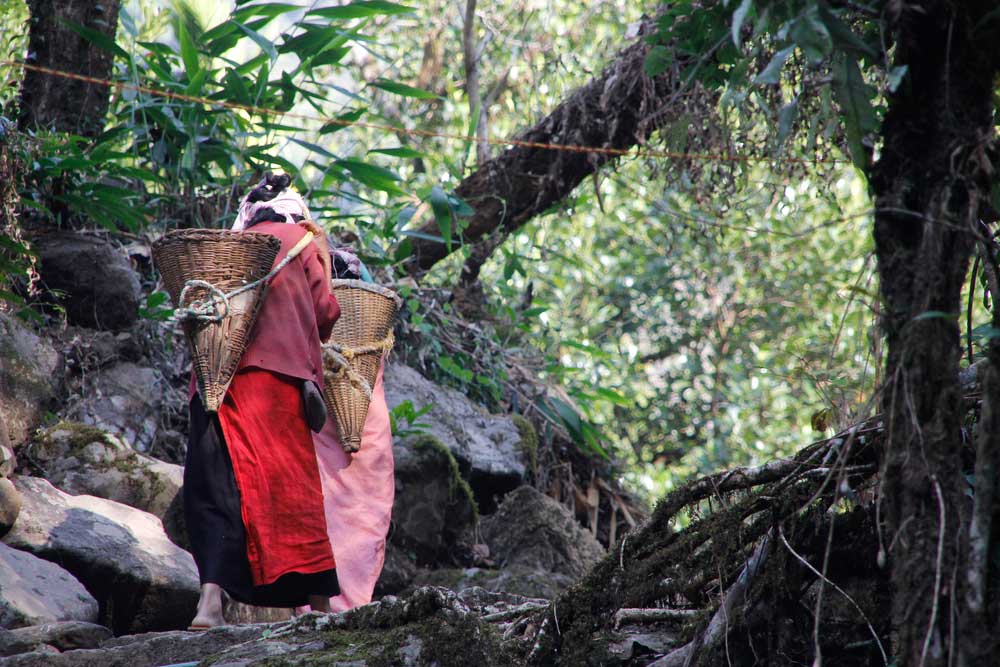The parliamentary standing committee on home affairs has disagreed with the Meghalaya government on the nomination of unrepresented tribes to the proposed autonomous territorial councils while batting for elections to be held to the village councils.
The committee had submitted its report to Parliament recently on the Constitution (125th Amendment) Bill, 2019 to amend Article 280 of the Constitution enabling the Finance Commission to recommend measures needed to augment the consolidated fund of the states, to supplement resources of the Sixth Schedule autonomous councils, village councils and municipal councils, to rename the existing autonomous district councils, to increase the number of seats in the district councils, to provide for reservation of at least two seats for women in the district councils, to constitute the state finance commissions in the states having the Sixth Schedule areas, to conduct elections to all autonomous councils by the state election commission and for providing disqualification of elected me-mbers on account of defection.
According to the bill, the proposed Garo Hills Autonomous Territorial Council shall comprise not more than 40 members, of whom 36 shall be elected on the basis of adult suffrage. The governor will nominate six members, of whom at least two shall be women and at least four from the “unrepresented tribes”.
The Khasi Hills Autonomous Territorial Council shall comprise not more than 40 members, of whom 36 shall be elected on the basis of adult suffrage. The governor will nominate four members, of whom at least two shall be women and at least two from unrepresented tribes.
However, the Jaiñtia Hills Autonomous Territorial Cou-ncil shall consist of not more than 34 members, of whom fo-ur members, including at least two women, shall be nominated by the governor and rest of the members shall be elected on the basis of adult suffrage.
The existing autonomous district councils are known as Khasi Hills Autonomous District Councils, Garo Hills Autonomous District Councils and the Jaiñtia Hills Autonomous District Council. But different groups, political parties and even the state government have petitioned the committee to remove the words “unrepresented tribes”.
In the report, the committee said, “The government of Meghalaya has suggested that there should not be any nomination of unrepresented tribes. The committee in this regard feels that inclusive participation of all the tribes is not only desirable but is a sine qua non in a democratic set-up.”
Therefore, the committee recommended that there should be representation of unrepresented tribes in the councils.
“It may be with a rider that only those tribes will be nominated in the nomination category which could not get elected in the election. Moreover, these nominations may be on the basis of some reasonable criteria and on rational basis, to obviate any arbitrariness. Regarding replacing the words ‘unrepresented tribes’ with ‘unrepresented indigenous tribes’, the committee feels once a rationale criterion is fixed for nominating unrepresented tribes, the said suggestion will be taken care of,” the report stated.
Apart from the three major tribes — Khasi, Jaintia and Garo — there are also other tribes living in Meghalaya.
Moreover, the bill has, for the time being, kept Meghalaya out of the purview of the provisions for elected village and municipal councils and one-third reservation for women.
The state has its unique system of traditional governance at the grassroots level, known as the dorbar shnong (village council), although participation of women is negligible since traditionally, women are not allowed to participate in the dorbar (assembly).
Apart from dorbar shnong, the state also has the institutions of syiem (chief) in Khasi hills, doloi in Jaintia hills and nokma in Garo hills.
In the report, the committee noted that the relaxation has been granted in consultation with the Meghalaya government. The state government had suggested that the existing practice of village dorbar/councils which recurs, are not elected by adult suffrage.
“The committee feels that this goes against the very basic norms of democratic principles. Customs/practices, however, sacrosanct they may be, should not override the democratic principles. The committee, therefore, recommends that ministry prescribe a time limit for lifting this relaxation/operation of this exemption to Meghalaya. Since it is a constitutional amendment bill, providing exemption to a state without any reasonable cause or any time limit may not be tenable,” the report noted.
The report stated that the Union home ministry had contended that the proposed amendments have been made to bring in elements of panchayati raj institution in the Sixth Schedule areas.
“The committee feels that providing any exception to the said provisions as has been done in the case of Meghalaya goes against the ethos of democracy particularly at the grassroots level. Demand for this exception may also arise from other states too. Therefore, the very purpose of bringing this amendment may get defeated if relaxation is given to any state,” the report stated.
The committee was of the view that for strengthening democracy at the grassroots, this provision should be applicable to all states without any exception.
“Though it is good to make laws on the basis of consultation with the concerned state governments, but providing democratic rights without exception to people particularly at village level is in the spirit of our constitution and democratic values. The exception to Meghalaya may be for a transitional/specified period till the state is ready for the said provision, but providing it for an indefinite time, needs to be reconsidered,” the report added.











